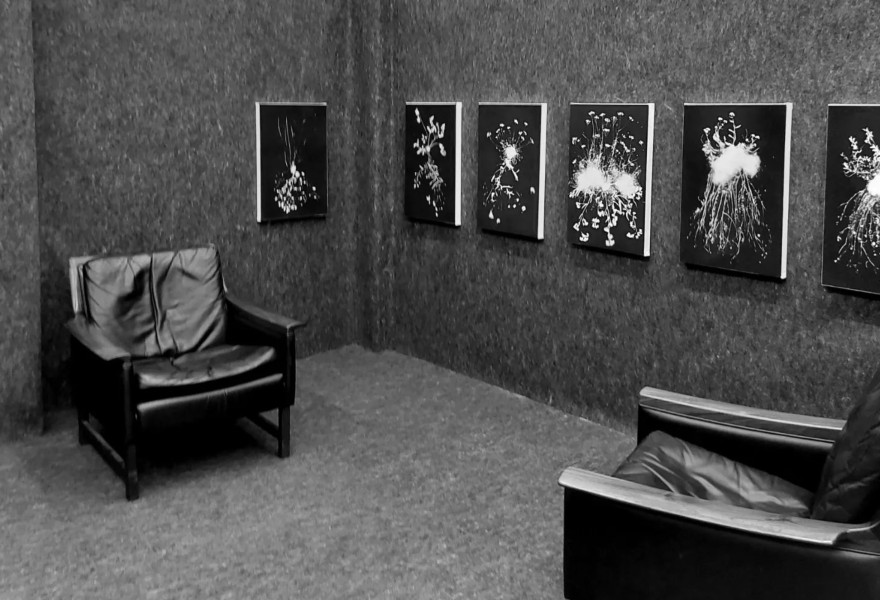31 may 2022, Flor Linckens
The dangerously beautiful work of TINKEBELL.
Dutch government campaigns with slogans like 'a better environment starts with you' have effectively forced us to reconsider our own behaviour in recent decades. But, as the Dutch Trouw newspaper headlined in 2017: “The key to a cleaner world lies with 100 companies” including Tata Steel. This steel factory near IJmuiden is part of one of the largest steel companies in the world and with 6.5 megatons of CO₂, it is also the largest polluter in the Netherlands. The company regularly makes the news with problematic headlines that feature "graphite rain", "mercury in the sewage" or "black snow" full of heavy metals. The percentage of lung cancer patients in the region is up to fifty percent higher than in the rest of the Netherlands.
For Dutch artist TINKEBELL. it gave rise to a new series of works. You can view these works in TORCH Gallery in Amsterdam until 18 June. For this project, she uses the fine and coarse dust that the factory emits as her main material, combined with flowers and plants that she picked in the area. She previously spent years researching the lingering fears surrounding the 2011 Fukushima nuclear disaster, which she found to be disproportionate to the real danger, more than a decade after the event. For the residents of IJmuiden, the situation is actually quite the opposite: complicated government structures allow Tata Steel to emit much more than is responsible, both in terms of heavy metals (dangerous in the short term) and CO₂ (dangerous on a large scale in the medium term). Yet residents' complaints aren't taken seriously, no doubt due to the fact that so much money is involved.
TINKBELL. spent many hours in a year in the dunes near Wijk aan Zee, right next to the controversial factory. She spent so much time there that she experienced physical complaints: from nosebleeds and headaches to dizziness and nausea. In her studio, she used a magnet to separate the metal from the sand that she collected, an unimaginably labour-intensive job. She then sprinkled the metal dust onto her canvas, over a series of draped flowers and plants from the area.
The attractively decorated and monochrome exhibition at TORCH Gallery evokes a series of contrasting feelings: you are in fact invited to admire the beauty of a series of works that symbolise unrestrained capitalist greed, at the expense of the health of local residents and the planet. The result is quite aesthetic, but the socially engaged artist really hopes to make us think.



